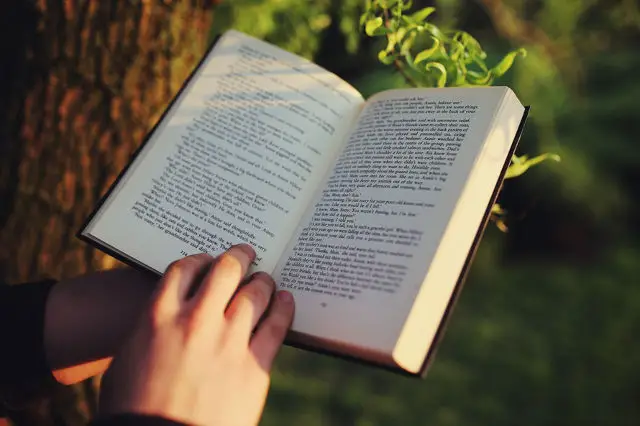Jonathan Dodd’s latest column. Guest opinion articles do not necessarily reflect the views of the publication. Ed
I’m reading a book. I read a lot of books, but sometimes the book I’m reading is somehow more substantial, the pages feel fuller, it all seems more significant. When this happens, I know as I read that it’s going to change me. Perhaps by filling me up with what feels like significant information, or wisdom, or it may have characters who stay with me and start to speak to me because I respect their voices. Or maybe it’s the story.
Sometimes stories are hefty. I don’t mean in the sheer mass of the book that makes it difficult to carry around and holding it up makes your arms ache. I mean hefty in size or sweep or vision, like Lord of the Rings. Nobody could accuse that of being ‘beach reading’, although I have read it on a beach during a holiday in Wales, when I was a teenager. I also read it in the bath, and in bus stops, and walking along the road, and while I was eating.
The sorrow I felt when I finished it
Sometimes a book will be so thrilling that I can’t put it down. The Girl with the Dragon Tattoo was like that. Reading it felt like a pain, a sweet ache, as I raced through the pages, utterly absorbed by the story and the extraordinary swathe that Lisbeth Salander cut through the lives of everyone around her, while at the same time there was a totally absorbing cold case murder mystery being investigated. The sorrow I felt when I finished it was only marginally lessened by knowing there were two more books to come.
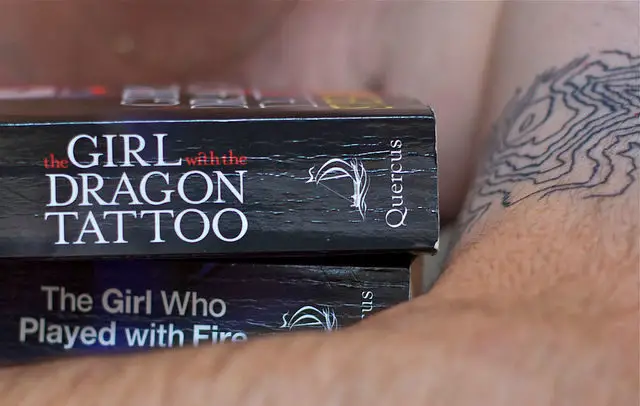
I felt quite devastated when I finished the His Dark Materials trilogy by Phillip Pullman, with its extraordinary cast of unforgettable characters, especially its young heroes Lyra and Will. There’s a unique power that books can have to grip your mind and your thoughts. You can feel the same emotional involvement in films, and they can change your life too, but they’re so much shorter.
Unless you’re eating popcorn, or texting
Books take longer to read, and they live in your mind while you have to stop for sleep, or work, or food. Your mind has longer to absorb the words, and you make a relationship with the book itself, carrying it or propping it open or holding it up, turning the pages. I think it makes for a deeper and more lasting experience than a film, where you sit for two hours and you just watch it. Unless you’re eating popcorn, or texting, of course.
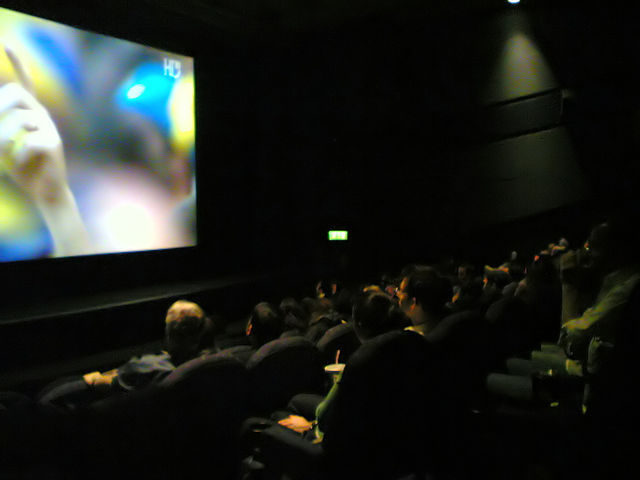
I love films. Everyone that knows me knows that. They hit me emotionally, and there’s something very pure and concentrated in the telling of a story in such a short time. I’m often more shocked or terrified or elated by a film, and that experience stays with me, sometimes for ever. Films make me cry far more often than books. But books speak to me more often in some deep place where the big stuff gets grappled with.
They all want us to engage with the story
I think this may be because the writer of a book has crafted it alone. It’s entirely the product of his or her imagination, and he or she has struggled for many months with it, creating from nothing a big solid thing that contains the message and the story to the best of his or her ability. Of course, there are editors and publishers, and rewriting, but this is essentially the soul of a book.
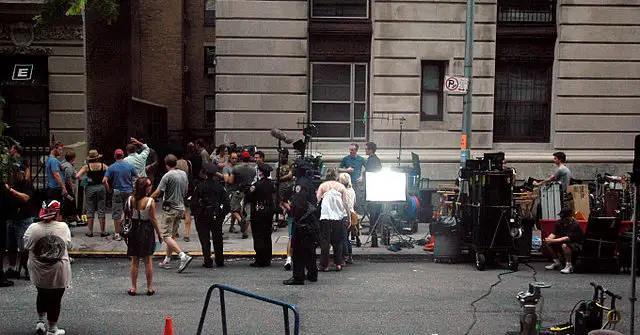
Films, however, are a huge collaborative affair. They all start with a writer and a script, but we never think of that while we sit and watch. So many people contribute their skills and commitment and their own vision to their particular part of the process. That’s why the end credits take so long to reel down the screen, and why the Oscars are so long. We don’t even think about Sound Editing, or Casting, or any of the technical genius that somebody sweated over when we’re sitting there in the dark, and none of those people want us to, because they all want us to engage with the story rather than admire the wizardry.
Occasionally something surprises everybody
There’s something else I rather like about the whole publishing and film production industries. I love it when a great film or book makes a lot of money and wins a lot of Oscars or literary prizes. I’m happy that a lot of dross makes a lot of money too, although I’m bound to complain when great films or books get overlooked. But occasionally something surprises everybody, either by being completely terrible, or because it captures something unexpected in the hearts and minds of readers and cinemagoers.
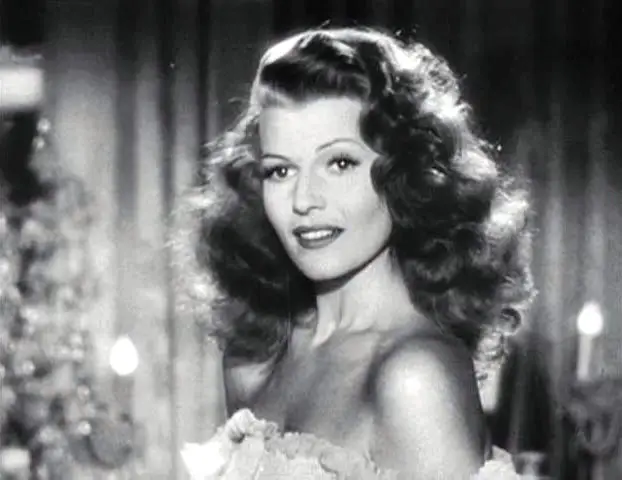
I don’t remember when The Shawshank Redemption came out in cinemas, because the marketing department didn’t know how to describe it, so nobody saw it in the cinema. Only when it came out on video did people watch it and tell their friends. It was a true word-of-mouth phenomenon and now sits high up in every list of best films.
They didn’t think it fitted in any niche
Did the studio mess up? I don’t know. They didn’t think it fitted in any niche, and they couldn’t imagine how it could pull in an audience. Perhaps it was the sort of story that needs a slow build-up. Nowadays we’re accustomed to relentless hype and advertising on a huge scale, and films and books get their brief moment in the spotlight before everything moves on.
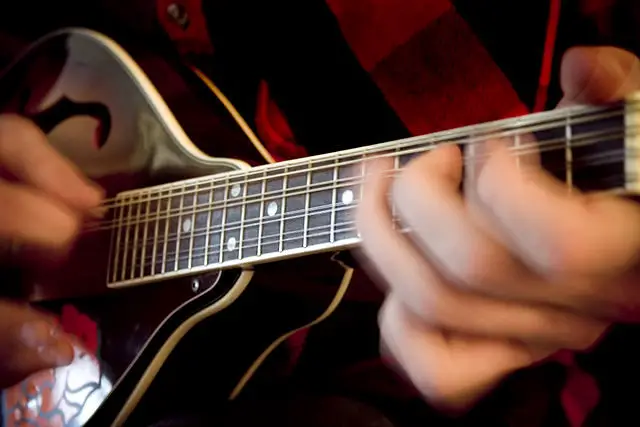
To be fair, books get a better deal. There’s no enormous investment to recoup. I remember reading a book by Louis de Bernieres called Senor Vivo and the Coca Lord, long before he became famous and successful. I thought he was a great writer, and read Captain Corelli’s Mandolin as soon as it came out. Over several months, it seemed like every time I went into a bookshop there was someone trying to describe a book they had been told to read. I used to say – “Is it called Captain Corelli’s Mandolin?” And it was, every time. It became a huge seller. Shame the film didn’t go down so well though.
Plucked from obscurity to greatness or riches or adulation
The first mega-success in e-publishing was Fifty Shades of Grey, which sold in huge numbers long before a major publishing house offered to publish it as a book. I can’t think of a single reviewer who whole-heartedly approved of the book, for any reason. I haven’t read it myself, so I can’t comment. But something in it chimed in some mysterious way with its audience, and I’m not sure anyone has yet managed to define that. The film was universally panned too, but it didn’t make any difference, it did good box office, and the second film is out soon.
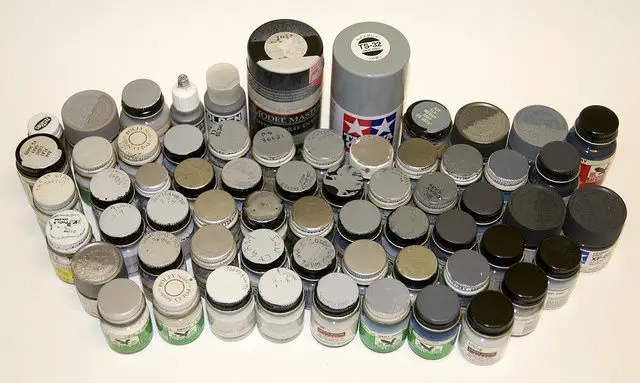
I particularly like the idea that nobody actually knows any of these things. Perhaps a lot of great works are lost for ever along the way, which saddens me, but there are enough stories of rejection followed by recognition and just rewards to keep the work flowing. Thank goodness. One of our most enduring myths is the possibility of being plucked from obscurity to greatness or riches or adulation.
Not everyone who is famous deserves to be so
Many people become successful through talent, hard work and application. Some become famous by accident, or through misdeeds. A lot of people with some talent become famous through management and marketing. Not everyone who is famous deserves to be so. There’s a whole industry now on TV where wannabes perform in front of judges in competitions whose prize is a career in the public gaze. And there’s a whole industry where people who are marginally famous volunteer to do unpleasant things for entertainment.
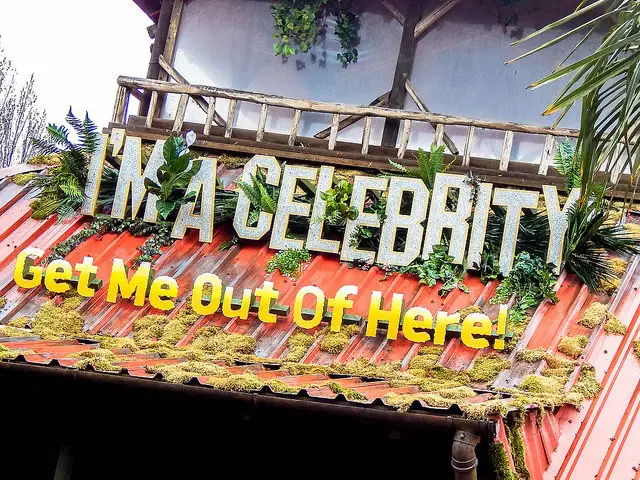
That’s all well and good, and has always been so. But the other side of this fame merry-go-round is when someone reaches the top of the tree. We support people in their struggle to get to the top, but we become angry and jealous of them when they arrive there. Falls from grace can be dizzying because they happen so fast, unlike the struggle to rise.
In The Light of What We Know
The book I’m reading now? The one that started me off down this particular meandering track? It’s called In The Light of What We Know, and it’s by Zia Haider Rahman. It’s a hefty 550 pages in paperback, and it’s very talky-talky. It definitely won’t be everybody’s cup of tea. It takes place in 2008, between two Muslim friends who haven’t seen each other for years. They come from hugely different backgrounds, and are both intelligent and accomplished in different ways, but neither of them is doing so well in their lives.
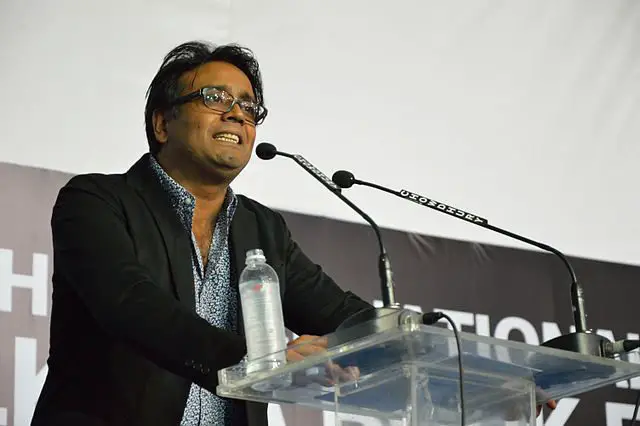
They talk. And in the talking, they reveal so much about their origins and the state of the world, and the truths and lies we tell ourselves, and our evasions. It ranges from Oxford to New York to Bangladesh and Afghanistan, the 2008 banking crash is in there, and 9/11, and the various Middle Eastern wars, but that’s not the thing that grips me. These two people have such a close relationship, and they’re so good at talking.
A long, slow build-up to an unknown climax
One of them is in big trouble because he’s a banker, but the other one is being evasive, telling his story gradually, leaving his friend and me guessing as to what has happened to him. We know it’s going to be terrible, but we don’t know how bad yet. It’s a long, slow build-up to an unknown climax, and I’m spellbound. The talk covers an astonishing array of subjects, and above all, it’s a fascinating journey. I love it.
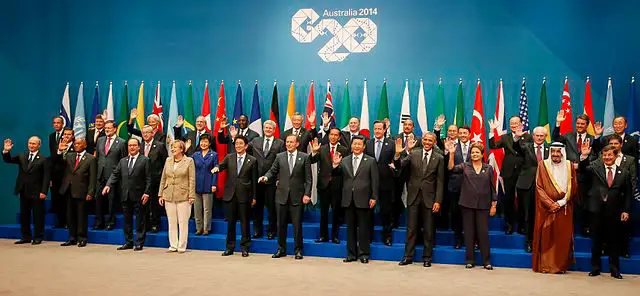
And they tell each other good jokes. Here’s my favourite:
You know what the problem with politicians is?
They’re the kind of people who want to be politicians.
If you have been, thank you for reading this.
Image: kaboompics.com under CC BY 2.0
Image: bearpark under CC BY 2.0
Image: Frankie Roberto under CC BY 2.0
Image: loridstone under CC BY 2.0
Image: Public Domain under CC BY 2.0
Image: Katie Brady under CC BY 2.0
Image: wbaiv under CC BY 2.0
Image: themeparkmania under CC BY 2.0
Image: Biswarup Ganguly under CC BY 2.0
Image: Agencia Brasil/Roberto Stuckert Filho under CC BY 2.0

